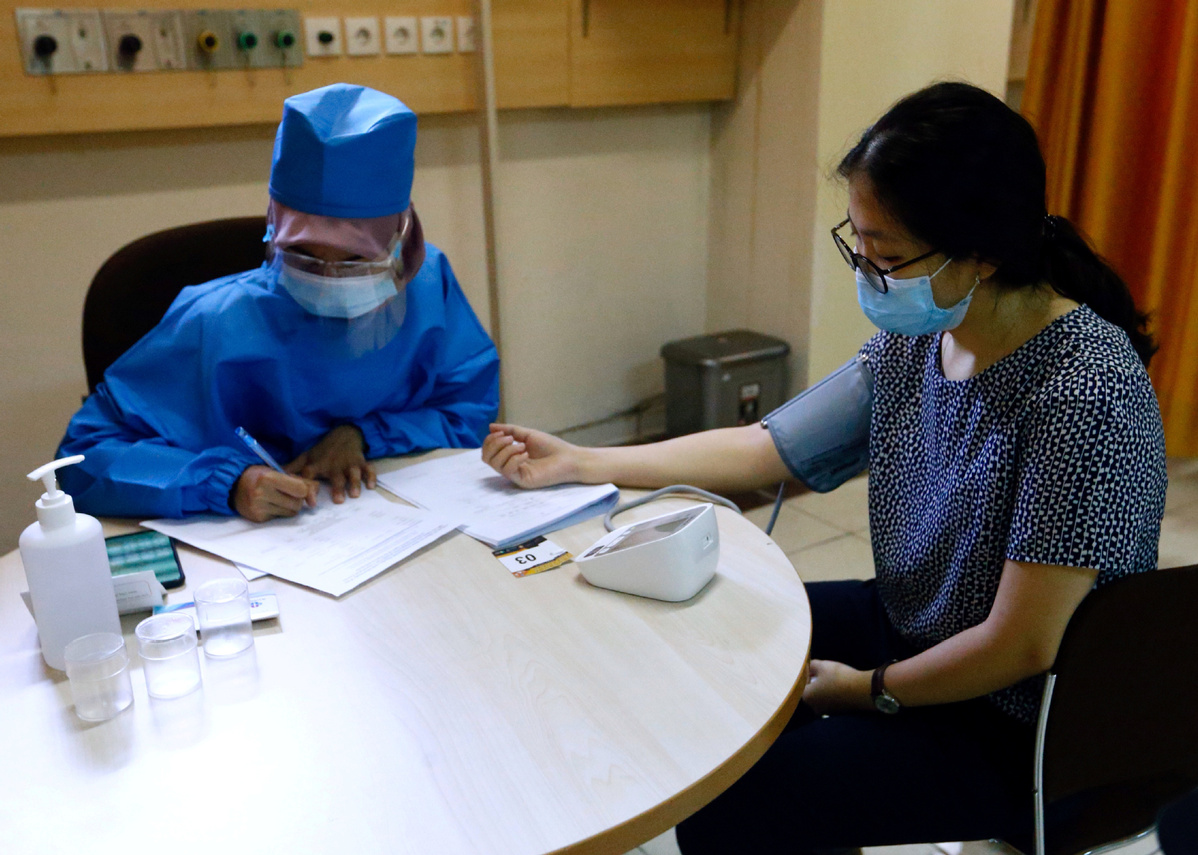Vaccine partnership hailed in Indonesia


A partnership between China and Indonesia on vaccine development may prove a "game changer" in the latter's battle against the coronavirus pandemic, analysts said.
Indonesia's state-owned pharmaceutical firm Bio Farma and China's Sinovac Biotech are conducting the third phase of clinical trials of CoronaVac-one of the World Health Organization's declared vaccine candidates against the COVID-19.
"A safe and effective vaccine will be a game changer in combating the COVID-19 pandemic for every country and the best protection for the mass public in the years to come," said Jennifer Huang Bouey, senior policy researcher and the Tang Chair in China Policy Studies at Rand Corporation, a global think tank.
Producing a safe and effective vaccine is part of Indonesia's campaign against the pandemic as the number of infections in the country swell to more than 540,000-the highest in Southeast Asia.
Indonesian President Joko Widodo said the government aims to conduct mass vaccinations by the end of this year. Apart from partnering with Sinovac, Indonesia has also secured potential COVID-19 vaccines produced by Chinese companies CanSino Biologics and China National Pharmaceutical Group, also known as Sinopharm, as well as with Abu Dhabi-based artificial intelligence and cloud computing company Group 42 and global pharmaceutical company AstraZeneca.
Mutual benefit
Huang Bouey welcomes the collaboration between Bio Farma and Sinovac, noting that while Sinovac needed Bio Farma's help to recruit volunteers for the trials of the vaccine candidate, the Indonesian company can benefit from the technology transfer.
She expects that "a scientifically sound clinical trial on COVID-19 will be conducted with the vigor that matches the two companies' reputation, and the results from the trial will be soon presented to the scientific world and the regulators upon the trial's completion".
The CoronaVac is classified as an inactivated vaccine because it is produced by growing the novel coronavirus in a cell culture. The cultured virus is later destroyed either by heat or chemicals to reduce its virulence.
"Transparency and accuracy of the trial will be critical to counter unexpected side effects and vaccine hesitancy that can derail a successful vaccine rollout in both countries," Huang Bouey said.
Yanuardi Syukur, lecturer on social anthropology at the University of Khairun in Indonesia's North Maluku Province, said Bio Farma and Sinovac's collaboration will strengthen the partnership between Chinese and Indonesian scientists as they work together in developing the "best vaccine" against the novel coronavirus.
Syukur said joint efforts by scientists can help government officials formulate policies based on science and data. "Indonesians still need to follow health protocols such as washing hands, social distancing, and wearing masks. This needs to be continuously socialized so that people will (adapt it as a) lifestyle under the new normal," he said.
Bio Farma and Sinovac signed an agreement in August for the supply, production and technology licensing of CoronaVac. Sinovac has committed to supply bulk vaccines to Bio Farma, allowing it to produce at least 40 million doses.































